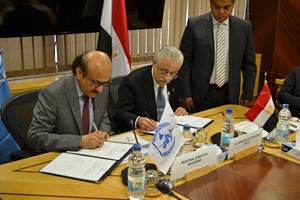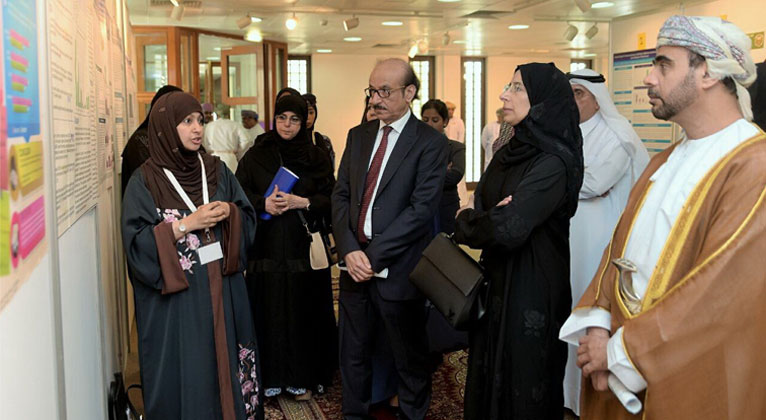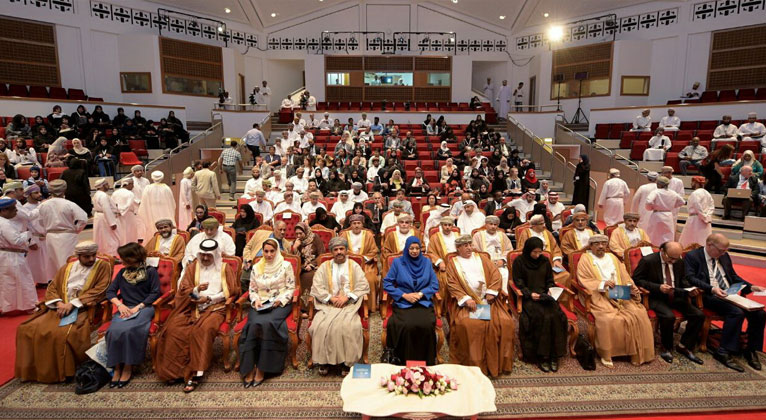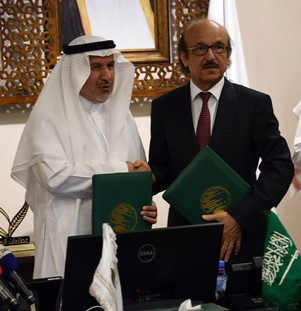 Dr Mahmoud Fikri, WHO Regional Director for the Eastern Mediterranean, and Dr Tarek Shawky, Minister Of Education and Head of the Egyptian Knowledge Bank , sign memorandum of understanding3 October 2017, Cairo – Dr Mahmoud Fikri, WHO Regional Director for the Eastern Mediterranean, met on Tuesday, 3 October 2017, with H.E. Dr Tarek Shawky, Minister of Education and president of the Egyptian Knowledge Bank (EKB), at the WHO premises in Cairo. The meeting aimed at enhancing collaboration in the field of knowledge sharing and accessibility of information resources.
Dr Mahmoud Fikri, WHO Regional Director for the Eastern Mediterranean, and Dr Tarek Shawky, Minister Of Education and Head of the Egyptian Knowledge Bank , sign memorandum of understanding3 October 2017, Cairo – Dr Mahmoud Fikri, WHO Regional Director for the Eastern Mediterranean, met on Tuesday, 3 October 2017, with H.E. Dr Tarek Shawky, Minister of Education and president of the Egyptian Knowledge Bank (EKB), at the WHO premises in Cairo. The meeting aimed at enhancing collaboration in the field of knowledge sharing and accessibility of information resources.
During the meeting, a memorandum of understanding was dually signed by the Regional Director and H.E Minister of Education. The MOU will grant a free-of-charge access to EKB collection for all WHO regional Office staff (Egyptian and non-Egyptian) from any place within Egypt.
“I am pleased to meet H.E. Dr Tarek Shawky, Minister Of Education and Head of EKB to discuss ways to further strengthening our collaboration in the area of knowledge development and information sharing” said Dr Mahmoud Fikri, “ The establishment of the EKB, the largest knowledge hub that provides on line access to the full text of huge valuable educational and scientific publications worldwide is a great achievement for Egypt”.
“The aim of the EKB is to encourage people to return back to building knowledge and learning through reading by providing rich and accessible content in all fields of knowledge” said Dr Tariq Shawky. “Our aim now is to expand and change from Knowledge to education and to build content in different fields including scientific and mathematic curricula. We are focusing on building the character of younger generation by focusing on ethics, values, identity and culture. We are impressed by the work of WHO and depend on partners like you and the World Bank to support our work,” Dr Shawky added.
The EKB was launched in 2016. After two years of discussions and joint work, WHO Regional Office is now granted access to the online services provided by the Bank. This will assist the staff to reach updated health information on a wider scale free-of–charge and smoothly.
In exchange, WHO will provide access to its HINARI and the WHO Medical Index for the Eastern Mediterranean Region.









